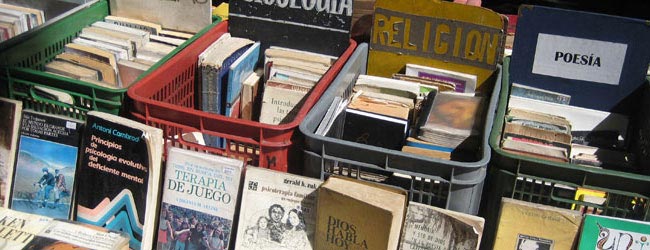Join the UruguayNow mailing list:
UruguayNow in the press
UruguayNow's mix of travel and tourist information on Uruguay, hotel reviews for Montevideo and Punta del Este (coming soon for Colonia), restaurant reviews and tips on excursions, sightseeing and lifestyle in Uruguay has been featured in El Pais, La Republica, MercoPress and on Uruguay's Channel 5 TV and other news media in the country. Internationally, we have had kind mentions in the New York Times and the Daily Telegraph.
Best of the Web
Not yet made it to Uruguay? When you're done with UruguayNow, our choice of the top 6 internet resources for the country is just a mouse click away. In no particular order, they are:
Southern Cone Travel: http://southernconeguidebooks.blogspot.com/
Mercopress: http://en.mercopress.com/
Ola Uruguay: www.olauruguay.com
Retired in Uruguay: http://wallyinuruguay.blogspot.com/
Uruguay Natural: www.uruguaynatural.com
Global Property Guide: http://www.globalpropertyguide.com/Latin-America/Uruguay
For reviews of these sites, please click here.
Other recommended sites

Words on the street
Evidence of literacy – and literature – is everywhere in Montevideo
In recent years, Uruguay's literacy rate has hovered around 97% of the total population – the highest figure in South America.
"Just about everyone in Montevideo can read," says Andr�s Linardi of the Librería Linardi y Risso, a mainly second-hand bookshop in the Old Town set up by Mr Linardi's father and a business partner, "but what is striking is that so many butchers, farmers and taxi drivers, for instance, buy and read books in Uruguay. One of my regular customers is a policeman with a beat around the Plaza Matriz who chooses a different book every so often."
The origins of Linardi y Risso go back to 1944. Previously a pulp fiction writer had set up shop in the same location. Some 45,000 books are on sale at any one time in the beautiful, cavernous premises, illuminated by a small winter garden at the rear of the shop.
Linardi y Risso is one of two bookstores just north of the Plaza Matriz which should be on every booklover's Montevideo itinerary. The other is the Librería Oriente Occidente, a marvellously atmospheric single-room reading den with creaking, antique floorboards, owned by longstanding bookseller Julio Moses.
"When Uruguayans want to find out about a subject, their first reflex is to turn to a book," says Mr Linardi. "Traditionally Uruguayan education was based on reading and analysis. On top of that, Uruguayans are curious about the outside world. They want to know where they are from and where we, as a nation, are from."
The voracious appetite of Uruguayans for reading material peaked, according to Mr Linardi, in the 1960s. "We are a very politicised people, it was inevitable that with so many changes in the world Uruguayans should look to books for explanations," he says.
Mr Linardi concedes that the rise of the internet is making itself felt and the Uruguayan love of reading is slowly being eroded: "Sometimes I buy a collection from a widow who will tell me, these were my husband's books, our children aren't so interested in reading."
Or perhaps their interests have narrowed: a current bestseller in Uruguay is La socieded de la nieve, a non-fiction work by Pablo Vierci for which all the survivors of the 1972 Andes air crash (who had to resort to eating the bodies of those who died on impact) agreed to be interviewed for the first time.
While in the first half of the twentieth century it was French literature – plus works of Shakespeare and the Spanish Golden Age – that dominated local tastes, from the end of the 1940s onwards Uruguayan publishing houses began to publish native writers finding their own voice. The form many chose was the cuento, or short story.
Mario Benedetti, who died in 2009, was probably the country's best-known exponent of the form. Born to a well-to-do family of Italian immigrants, Benedetti was the chronicler of the increasingly prosperous Uruguayan middle class at the time of the vacas gordas – the period of national wealth (the time of the "fat cows") in the years that followed the Second World War. He came to prominence in 1959 with the publication of Montevideanos (Montevideans), a collection of cuentos that contained more than a nod to James Joyce's Dubliners. These stories revealed the frustrations, hopes – and on occasion – joys of the city's individuals and families, confronted with situations which could be stifling, but were also sometimes full of the sense that Benedetti's creations had the world at their feet.
Meanwhile, in his short 1966 tale La noche de los feos ("The Night of the Ugly") two disfigured, lonely people come together in the dark of a cinema and find a closeness that is, in part, an act of defiance. The story is also a pithy portrait of the heyday of Avenida 18 de Julio and the city's downtown, and is worth seeking out.
Benedetti – who spend a decade in exile during Uruguay's period of military dictatorship – was one of many writers and eminent guests to make a contribution to Linardi y Risso's visitors' book. He wrote a poem that pokes gentle fun at Mr Linardi's father, Adolfo, a lover of books who never forgot that selling them was also a business.
When Mr Linardi, son, turns the page to Benedetti's entry, he does so with evident pride.
Factfile:
Librería Linardi y Risso, calle G�mez corner Rincón, tel. 915 7129, www.linardiyrisso.com
Librería Oriente Occidente, calle Rincón corner G�mez, tel. 915 4065, www.mosesbks.com
No sales tax is imposed on books and other reading material in Uruguay. For more recommended bookstores, see our Shopping in Montevideo chapter.
